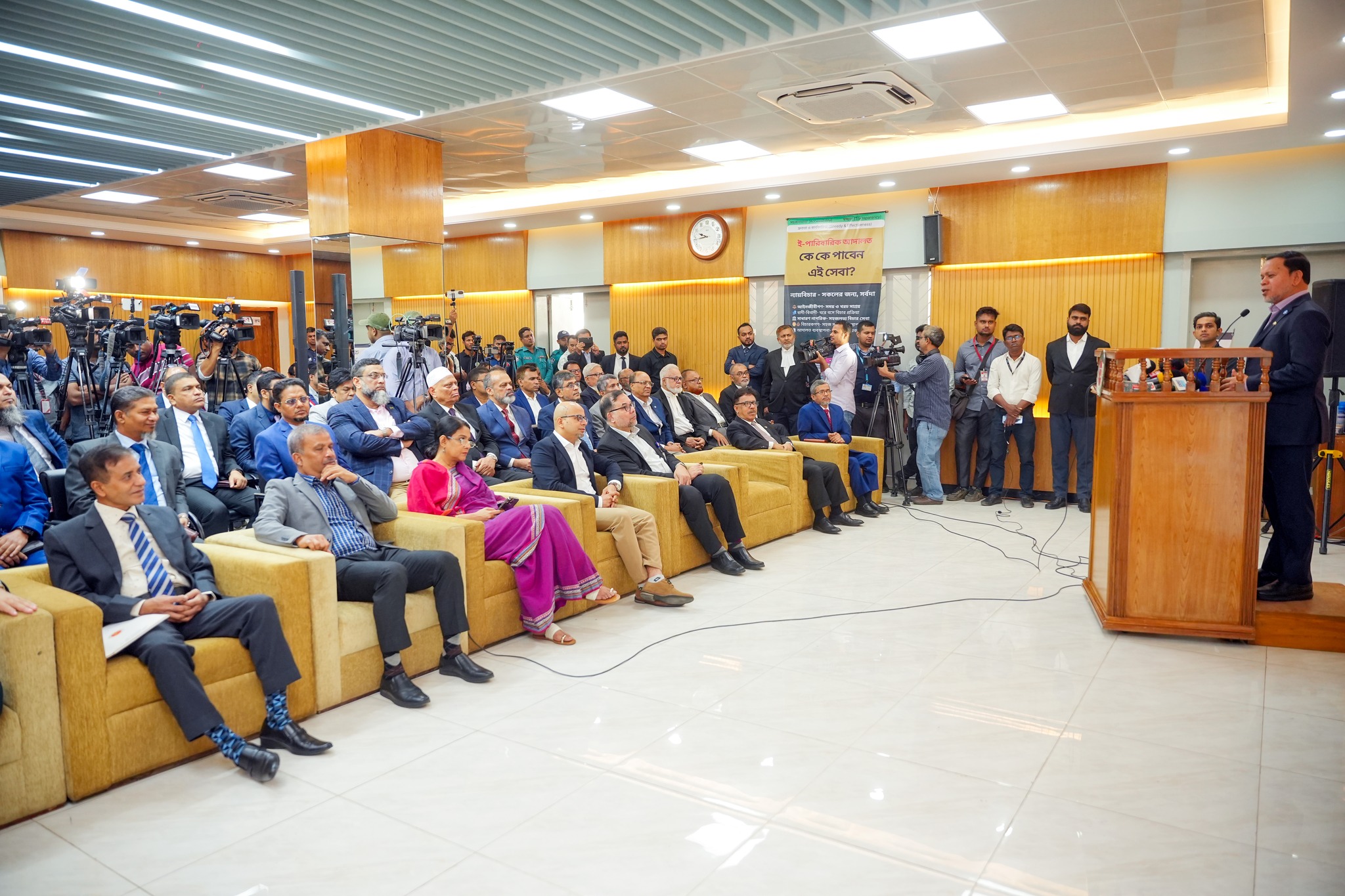
DC, Washington Nov 28, 2025 (Issuewire.com) - Bangladesh has entered a transformative phase in its judicial history with the official inauguration of the countrys first e-Family Court, marking a new chapter in the digital transformation of its justice system. The platform, launched as a fully integrated Digital Court Management and Case Automation Solution, represents a major advancement in how family law cases are filed, processed and adjudicated, while highlighting the critical role played by the core developers of the Department of Computer Science & Engineering (CSE), Daffodil International University (DIU).
The e-Family Court platform was developed and implemented by Daffodil International Universitys Centre for Software Development & Emerging Technologies in collaboration with Daffodil Software Ltd., serving as the principal technological partners of the initiative. The system officially went live at Dhaka Family Court5 on November 24, 2025, and is scheduled to become operational at Chattogram Family Court1 from November 30, 2025, with plans for phased expansion across the country.
This advanced digital court system provides court users with online case filing, digital documentation, automated scheduling, 24/7 registration access and limited online hearings, significantly reducing the need for physical presence and paper-based processes. By enabling judicial services from home, the platform aims to accelerate case resolution, reduce corruption risks, enhance transparency, and improve overall access to justice.
At the core of this achievement is a dedicated team of full-stack developers from DIUs CSE Department who translated complex judicial workflows into a functional, secure, and user-friendly digital platform. Their work encompassed system architecture design, backend and frontend development, database structuring, security integration, and performance optimisation, ensuring the system meets both legal compliance standards and real-world usability requirements.
Here are the developers of the e-Family Court Bangladesh below:
Department of Computer Science & Engineering (CSE), Daffodil International University
Mohammad Mejbaul Islam Zion (Full Stack Developer, CSE Dept, DIU)
Zohir Rayhan (Full Stack Developer, CSE Dept, DIU)
Shafin Ahmed (Full Stack Developer, CSE Dept, DIU)
Mohammd Emon (Full Stack Developer, CSE Dept, DIU)
Jubayer Amin (Full Stack Developer, CSE Dept, DIU)
Sadat Alam Pratik (Full Stack Developer, CSE Dept, DIU)
The project was developed under the strategic leadership of Professor Dr. Sheak Rashed Haider Noori, Head of the Department of Computer Science & Engineering at DIU, who served as Project Director. Additional key contributors included Dr. Md. Riaduzzaman, Assistant Professor of the Department of Law, as Project Coordinator and Domain Expert; Md Julfikar Ali as Consultant and System Analyst; Assistant Registrar Mohammad Khairul Sagir as Financial and Administrative Coordinator; Md Hasanuzzaman Dipu, faculty member of CSE, as Project Manager; and Md Zahidul Alam, faculty member of CSE, as Team Lead (ML & AI) and Database Administrator.
The inauguration ceremony was attended by several distinguished guests, including Professor Dr. Asif Nazrul, Adviser to the Ministry of Law, Justice, and Parliamentary Affairs; Syeda Rizwana Hasan, Adviser to the Ministry of Environment, Forest, and Climate Change; and Faez Ahmed Taiyyeb, Special Assistant to the Honourable Chief Adviser (ICT). Senior leadership from Daffodil International University, including Founder and Chairman Dr. Md. Sabur Khan, also participated in the event.
During the ceremony, Dr. Asif Nazrul stated that the e-Family Court initiative would lay the groundwork for broader e-Judiciary and e-Registration reforms across the country. Syeda Rizwana Hasan highlighted the environmental benefits of the paperless system, noting its contribution to sustainable governance, while Faez Ahmed Taiyyeb emphasized the platforms potential to improve efficiency and professionalism within the legal community.
Dr. Md. Sabur Khan described the initiative as a model national project and emphasized the role of universities in addressing public service challenges through innovation. He noted that the youth of Bangladesh, particularly university students, possess the potential to solve national problems and transform cities like Dhaka into technology-driven, well-planned metropolitan models through innovation and strategic engagement.
The e-Court solution, developed without government funding, has already been successfully tested by approximately 250300 officials from the Judiciary, the Ministry of Law, and the Supreme Court, validating its operational effectiveness and readiness for broader implementation.
Built on a collaborative governmentuniversitytech industry model, the e-Family Court represents a milestone in achieving the vision of Digital Bangladesh. The system is designed to serve as a benchmark for future digital justice platforms, enabling transparency, efficiency and citizen-centric service delivery across the judicial sector.
Looking forward, continuous enhancements are being planned, including AI-assisted case prioritisation, automated legal document generation, integration with national identity systems, and expanded online hearing capabilities. These improvements aim to strengthen the foundation for a fully digitised judiciary that is both accessible and responsive to public needs.
The successful implementation of the e-Family Court is a testament to the innovation, technical excellence and dedication of the DIU CSE core developers. Their contribution demonstrates how academic expertise and technological innovation can be effectively leveraged to modernise national institutions and redefine the delivery of justice in Bangladesh.




Source :Horizon News
This article was originally published by IssueWire. Read the original article here.